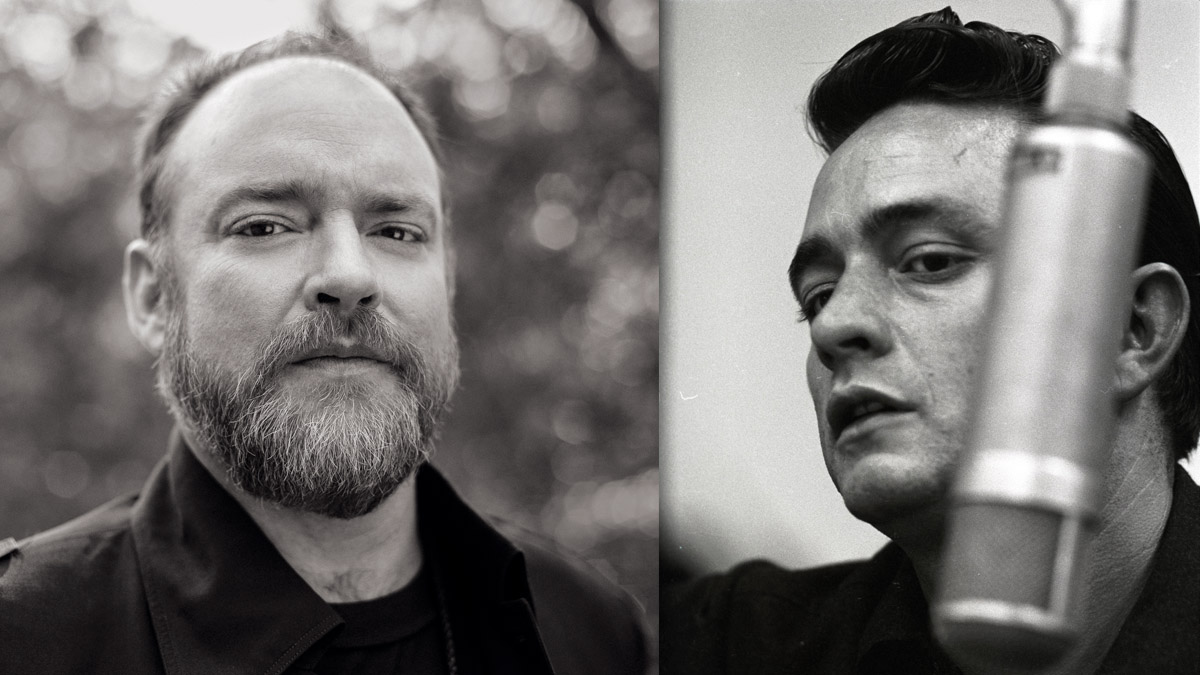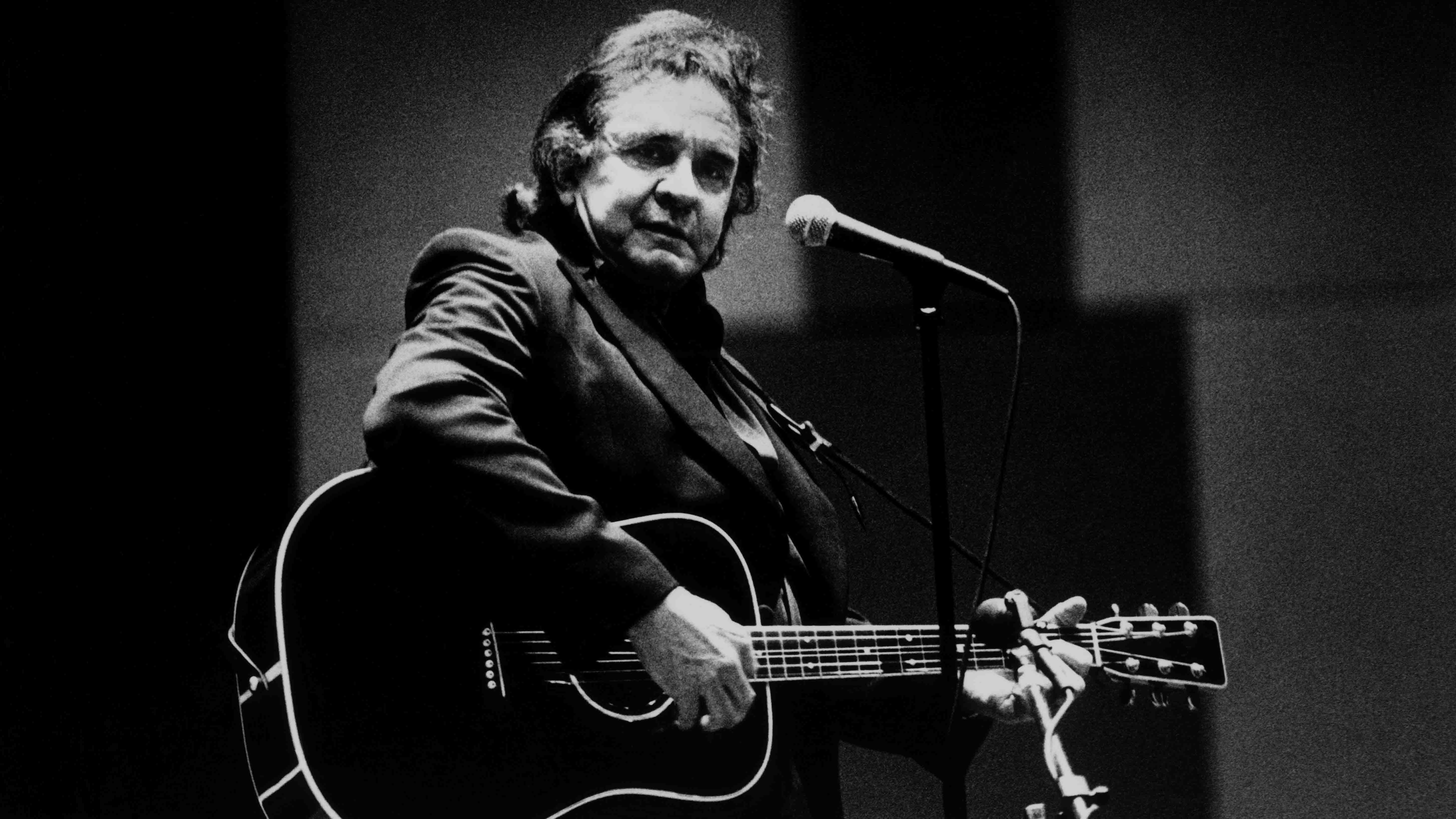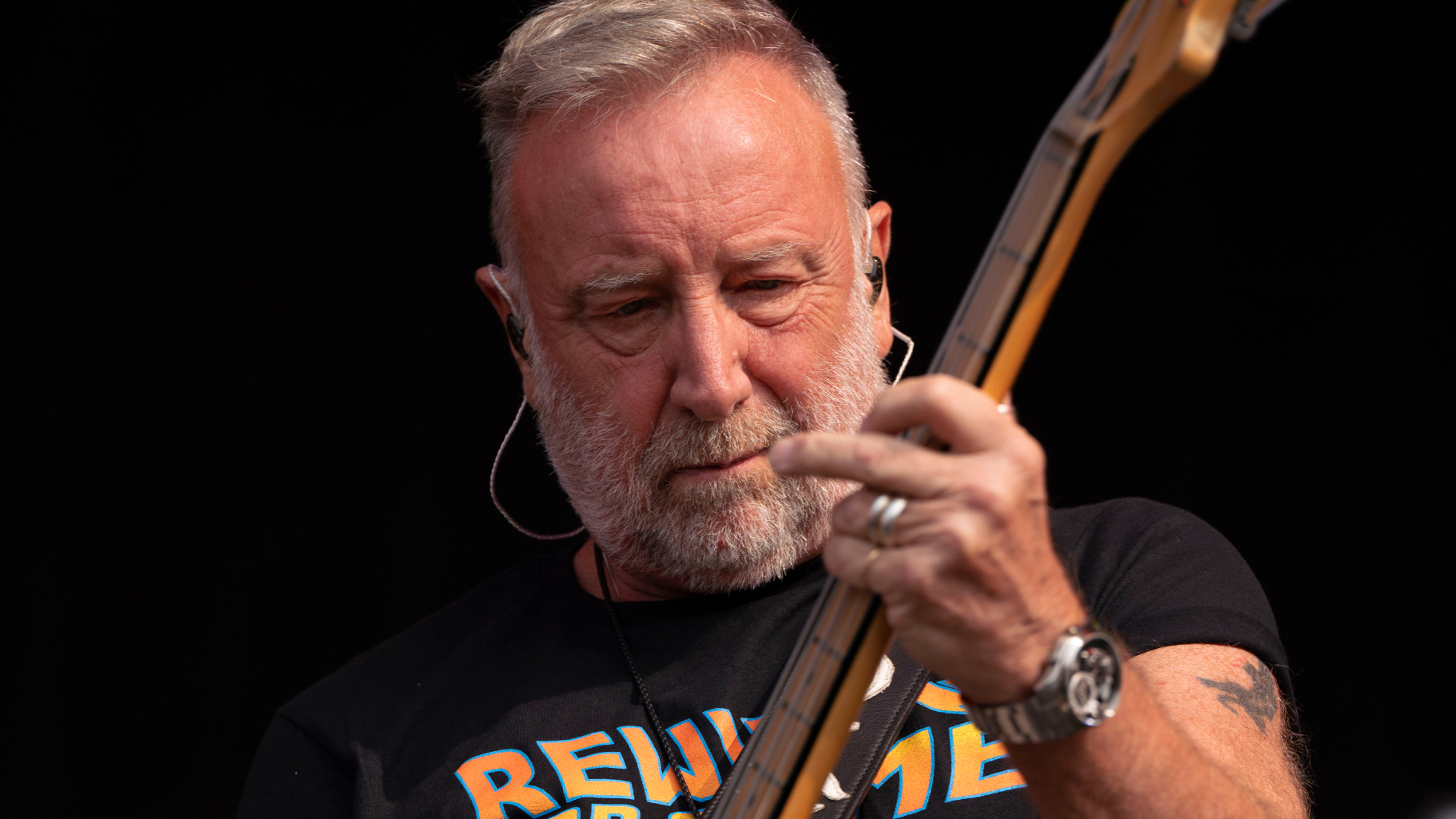John Carter Cash: “It was a great journey to work with all these artists and watch them honestly connect with my father”
The producer discusses working with Chris Cornell, Brad Paisley and more on Johnny Cash: Forever Words

John Carter Cash - the sole offspring of Johnny Cash’s marriage to June Carter – has spent the last decade or so compiling 200+ of his father’s unpublished works.
Last year, 43 of those were housed in the Forever Words poetry collection. Now, there’s a unique compilation of the same name, in which a star-studded line-up including Chris Cornell (in one of his final solo recordings), Brad Paisley, Willie Nelson, Kris Kristofferson, Alison Kraus and Elvis Costello - along with both Rosanne and Carlene Cash - have written music for and performed a selection of Cash’s once-lost lyrical creations.
Produced by Carter Cash, much of the material was recorded at the Cash Cabin Studios, a space initially conceived as a reading retreat on the Man In Black’s Tennessee estate and now, under John’s stewardship, a busy working production facility.
We spoke to Carter Cash about the record’s origins, Cash’s recording approach and working with Chris Cornell on what has quickly become the album’s talking point, You Never Knew My Mind.
How did you come to discover the material that has become these songs?
“When my father passed away, his office was just off his bedroom and it was also a library. He loved books, you know? He had papers all tucked in different drawers, some stuff in a safe in his office. I went through all these things and I think, as any child would [feel], the writing of my father touched me.
There were about 200 unpublished works, which ranged from when he was 12 years old all the way up to just weeks before he passed away
“I did research to determine what was unpublished and there were about 200 unpublished works, which ranged from when he was 12 years old - there’s one I think might be from maybe a little bit earlier, maybe 10 - all the way up to just weeks before he passed away [in 2003].
Get the MusicRadar Newsletter
Want all the hottest music and gear news, reviews, deals, features and more, direct to your inbox? Sign up here.
“When I’d see these words, I’d think, ‘That could be a song.’ So I took these to artists, who loved my father, and presented these works to them and I became excited. What made that workable is because within those genres of music from bluegrass and gospel to folk and [classic country, or hip hop and rock] is that there are artists that are fans of my father. Those people all have the same Johnny Cash record collections.”
We wanted to ask about working in the studio. You’ve previously said that your father was very in control in the studio…
“Yeah, you couldn’t really produce him!”
How did that manifest itself? Was he interested in sound, as in an entity distinct from writing or performance?
“When I worked with my father - and I should preface with that, because there were many times in his life when he went in different directions - it was all about the song. That was number one. That was a sort of credo for him and Rick [Rubin, producer of the latter-day American Recordings series] and the whole production team.
Number one was the fact that my father be at the front. That’s why there’s no bass on any of those records, because he is the bass!
“Number one, also, was the fact that my father be at the front. That’s why there’s no bass on any of those records, because he is the bass! The nuances of his voice, you can hear every touch of his inflection in those last recordings that he did. Working with my father, we knew that during that time it would be a bare essence production.
“Dad would sometimes have more musicians in the studio that would wind up on the mix- that had a lot to do with Rick’s choice - but while my dad was alive, everything that came out, he was very much involved in, with the mix and making suggestions and whatnot.”
How much of the recording of Forever Words was done at the Cash Cabin Studio?
“All but seven of the 16. And I was at the recordings for all but a couple. The majority was done at the Cash Cabin Studio. The Brad Paisley track [Gold All Over the Ground] was done just down the road, but his heart was so into it, man.
“I handed him the lyric and what came out of his mouth was the song in its entirety. I happened to have my phone and he asked me to record it as he got going with that guitar, so I recorded him and, spontaneously, the whole thing was written.
“The same thing happened with Jamey Johnson [for Spirit Rider]. But, yeah, it was mostly done at the Cash Cabin Studio. It was just one room when Dad used to record there, but it’s quite a bit larger now and there have been thousands of recordings done there since my father passed away.”
Can you describe the space and history at the Cash Cabin Studios?
“It was a one-room log cabin originally, with a [sleeping] loft upstairs. It was a place that Dad put in the middle of the woods across the street from his main house because when he’d get back from being on the road sometimes it would be louder at home than it had been when he was travelling, so he had that cabin built in the woods in 1978… He would read and just find peace and calm.
“We’d spend the night there, he and I. I would watch movies, while he would sit on the porch and read or write. He’d tool around in the kitchen and fry baloney sandwiches. It was just a place of peace for him.
“It was never intended to be a recording studio, but then he said to David Ferguson, his recording engineer throughout the latter part of his life, ‘Hey I wanna record some stuff in the cabin.’ David Ferguson was like, ‘Err, you mean the one in the woods?’
“So he brought in a little blackface ADAT [the original Alesis tape system from the early '90s], a Mackie console and an AKG C414. My Mother’s Hymn Book, which is in the American Recordings: Unearthed boxset, that’s one of the first things that was ever done in there. Then Why Me Lord, which is on the first American Recordings album, was done there.”

What were the main acoustics for the recordings? Did you use any of your dad’s old gear?
“Yeah, his black Martin was used on a couple of things on the album. Then there’s a Recording King guitar that was used. The number one guitar at the cabin is the Roseanne Cash Series Martin [OM-28] and we use that as the go-to, best-kept guitar at the cabin. But his instruments are there and we do use them sometimes.
“His black Martin, the one that he played on the American Recordings series - he recorded that whole first [American] album, just him and the guitar - and he beat that guitar to death! He dropped it and knocked it. His hit marks are all over that guitar.
“It’s actually the first black Martin ever made. He called them and said, ‘Will you make me a black Martin?’ And Martin said, ‘We don’t do black Martins.’ So he found the number for a luthier down on the floor and called them and, you know, here’s Johnny Cash calling in and it’s like [adopts remarkable Cash impression] ‘Hello. This is Johnny Cash.’ What are you going to do? Tell him ‘no’? So the luthier, well so they said, used shoe polish to make it black.”
The Chris Cornell session for You Never Knew My Mind seems to be really resonating with people, understandably. How would you describe the atmosphere of that session?
“Chris took the whole thing as a very serious endeavour. You Never Knew My Mind was originally two separate pieces. One was ‘you never knew my mind’ and the other was ‘I never knew your mind’. They were the same song, really, just slightly different in some of the lines and the person [narrating].
“Chris had been through a divorce and my father wrote that in 1967, when he was in the midst of his divorce being finalised, and Chris related deeply to that. He took a while to write it. It was three weeks, then he sent this mp3 of the demo and it affected me deeply. It’s so powerful.
You Never Really Knew My Mind connected on so many levels. It’s like an orchestra of chaos with a fragile line in the middle
“When he came to the studio, he was very humble, he was very relaxed. Chris was always so kind. That was just his nature, and we developed a camaraderie. It almost made me cry hearing it the first time, but then I did cry quite a few times when I had to mix it and hear it over and over. It connected on so many levels. It’s like an orchestra of chaos with a fragile line in the middle. There’s a lot surrounding it, but there’s a core of beauty in there, too.”
What have you learned about your father, seeing him through the eyes of others, as you have done in this process?
“I feel like I’m seeing through a different pair of glasses now that I’m a little bit older, now that I’m 48. I was younger when my father passed away, so it’s almost like I’m communicating with him. I don’t know that I’m more mature. I’m just different. I’ve had more experiences.
“Hearing these words now affected me differently than it would have all those years ago. It was a great journey to work with all these artists and to watch their creative processes. To be close to that and to watch them honestly connect with my father in their own hearts was amazing.”
Johnny Cash: Forever Words is out on 6 April via Legacy Recordings.
Matt is a freelance journalist who has spent the last decade interviewing musicians for the likes of Total Guitar, Guitarist, Guitar World, MusicRadar, NME.com, DJ Mag and Electronic Sound. In 2020, he launched CreativeMoney.co.uk, which aims to share the ideas that make creative lifestyles more sustainable. He plays guitar, but should not be allowed near your delay pedals.



![PRS Archon Classic and Mark Tremonti MT 15 v2: the newly redesigned tube amps offer a host of new features and tones, with the Alter Bridge guitarist's new lunchbox head [right] featuring the Overdrive channel from his MT 100 head, and there's a half-power switch, too.](https://cdn.mos.cms.futurecdn.net/FD37q5pRLCQDhCpT8y94Zi.jpg)






